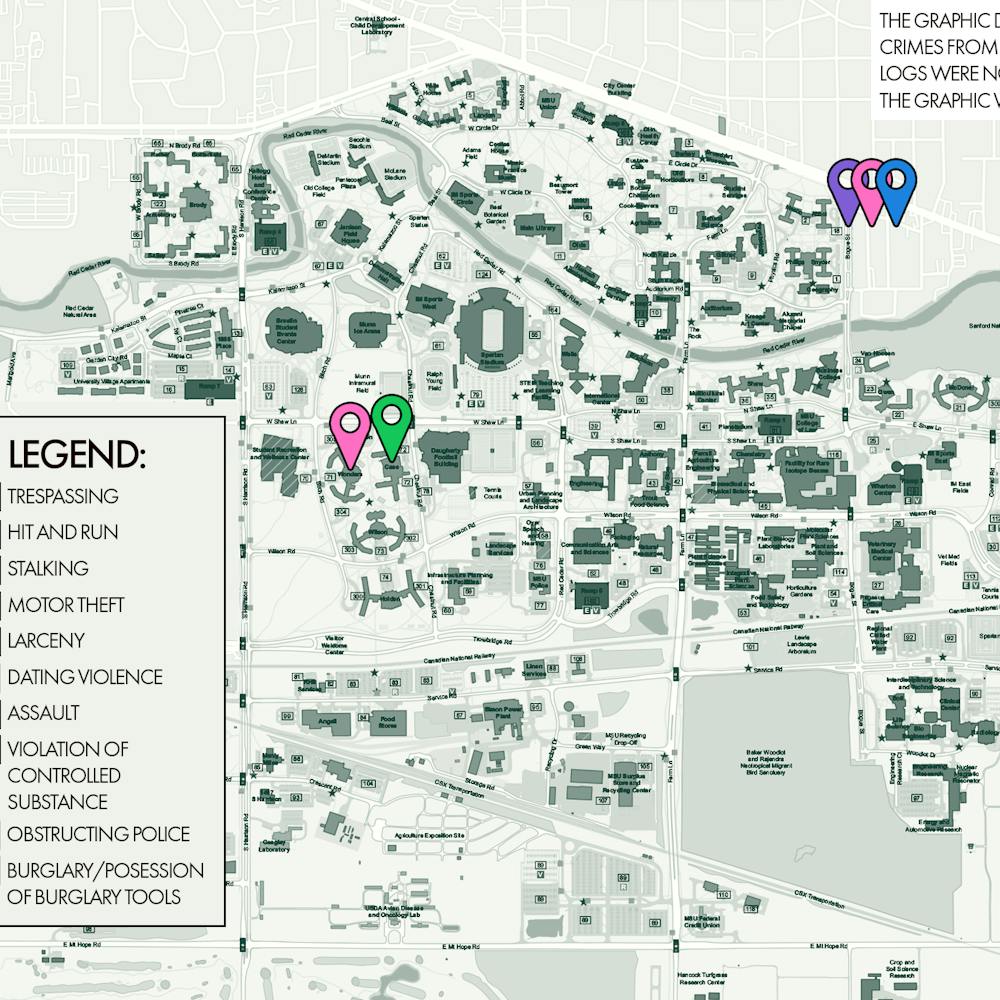The norovirus breakout at the University of Michigan and the recent issues at the Kellogg Center has led MSU to help educate students about how to be protected from the virus.
Each year norovirus is contracted 19 to 21 million times, with 56,000 to 71,000 hospitalizations and 570 to 800 deaths from the disease, according to the Centers for Disease Control and Prevention.
U-M has confirmed up to 150 of its students have contracted the virus.
More than 60 cases of stomach illness from those who recently visited The State Room restaurant inside of the Kellogg Center have been reported.
The virus is contagious and it spreads mainly through contaminated food ingestion and touching contaminated surfaces, health and nutrition educator at MSU and norovirus expert Jeannie Nichols said.
To prevent the contraction of norovirus, Nichols said people should wash their hands frequently with soap and hot water.
The CDC's website also advises rinsing of fruits and vegetables and to avoid preparing food for others if you have symptoms for at least two days after recovering from the illness.
The East Neighborhood dining halls have asked employees to change their gloves more frequently and wash utensils more often as well, kinesiology freshman Albert Gesierich, who works in East Neighborhood dining halls, said.
“They are over the top with cleaning everything, it is kind of ridiculous,” Gesierich said. “I think it's just because everyone is getting sick.”
According to the CDC's website, the virus mimics symptoms of influenza and food poisoning. It is the leading case of gastroenteritis, or inflammation of the stomach and intestines, in the U.S.
Symptoms can form 12 to 48 hours after exposure to the virus and common symptoms include nausea, vomiting, diarrhea and stomach cramping. Those affected may also have fever, chills, headache, muscle aches and a general sense of fatigue.
Because of the loss of bodily fluids, infected people can become very dehydrated.
Infected people generally have the disease for one to three days. In rare cases, the virus might last up to two weeks in the body, Nichols said.
Norovirus can be found in the fecal matter and vomit of infected people. When assisting someone infected with norovirus, taking extra cleaning precautions is advised.
The potential for death from the disease is mainly in high risk patients, such as the elderly, children and people with immune compromising diseases like cancer, Nichols said.
Support student media!
Please consider donating to The State News and help fund the future of journalism.
Discussion
Share and discuss “Norovirus breakout is preventable according to expert” on social media.






